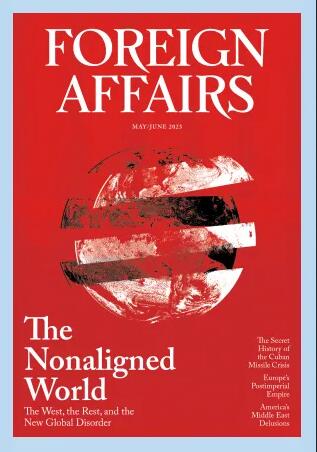欧洲一体化战略中的跨国界区域主义:一个概念维度
IF 6.3
2区 社会学
Q1 INTERNATIONAL RELATIONS
引用次数: 0
摘要
在世纪之交,由于重新解释民族国家和超国家实体的地位和作用而产生的边界和边境领土问题成为社会分析的焦点。对欧洲一体化进程跨界战略的科学关注是由对区域主义现象的新认识和地域认同的特征决定的。跨境区域主义研究的相关性在于,人们意识到在现代世界体系中,属地性的比重日益增加,需要找到算法来应对我们这个时代的挑战,这些挑战的特征是“与领土相绑定”。本文的目的是对跨境合作的模式和概念进行理论和方法研究,这些模式和概念是在欧洲空间内全球化和区域化相互关联的过程的影响下形成的。目前各国在跨界合作方面的运作情况需要证实概念性办法,以揭示跨界区域作为一种方法结构的本质。地缘政治和地理历史方法论的应用决定了跨境区域主义的本质特征的表现,也决定了边境地区在欧洲一体化战略中的作用和地位。研究结果表明,跨境合作的有效性取决于在创建欧洲区域的过程中考虑边境地区人口的历史传统、心态和社会态度的程度。研究发现,在不同的国家组织中,如何将社会长期发展所带来的风险最小化,直接取决于对跨境地区的具体情况、潜力和机会的科学认识程度,以及价值取向和行为刻板印象的可变性。我们认为,边界的“透明度”是各国平衡发展的有力资源,增强了跨境动态在经济、文化和生态领域的作用。研究的现实意义在于欧洲一体化战略协调、区域认同发展和决策权力下放的空间趋势表征。增加关于跨国界区域主义的科学知识将有助于更好地理解乌克兰在现代世界中的作用和地位,并使其更接近进入欧洲政治空间本文章由计算机程序翻译,如有差异,请以英文原文为准。
Cross-Border Regionalism in European Integration Strategies: A Conceptual Dimension
At the turn of the millennium, the issues of borders and border territories that arose as a result of the reinterpretation of the place and role of national states and supranational entities became the focus of social analysis. Scientific attention to cross-border strategies of European integration processes is determined both by a new vision of the phenomenon of regionalism and the characteristic features of territorial identities. The relevance of the study of crossborder regionalism lies in the awareness of the increasing specific weight of territoriality in the modern world system and the need to find algorithms to answer the challenges of our time, which are marked by “binding to the territory”. The purpose of the article is the theoretical and methodological study of models and concepts of cross-border cooperation, which are formed under the influence of interconnected processes of globalization and regionalization within the European space. The current conditions of functioning of countries in the context of cross-border cooperation necessitate the substantiation of conceptual approaches to uncovering the essence of the cross-border region as a methodological construct. The application of geopolitical and geohistorical methodology determines the representation of the essential characteristics of cross-border regionalism as well as the determination of the role and place of border regions in European integration strategies. As a result of the study, it was proven that the effectiveness of cross-border cooperation depends on the extent, to which the historical traditions, mentality and social attitudes of the population of the border areas are taken into account in the process of creating Euroregions. It has been found that the minimization of risks caused by the long-term development of societies within various state organizations directly depend on the degree of scientific understanding of the specifics, potential and opportunities of cross-border regions, as well as the variability of value orientations and behavioral stereotypes. It was determined that the “transparency” of borders is a powerful resource for the balanced development of states, increasing the role of cross-border dynamics in the sphere of economy, culture, and ecology. The practical significance of the study is determined by the representation of spatial trends in the coordination of European integration strategies, the development of regional identity, and the decentralization of decision-making. Increasing scientific knowledge about cross-border regionalism will help to better understand the role and place of Ukraine in the modern world and bring it closer to entering the European political space
求助全文
通过发布文献求助,成功后即可免费获取论文全文。
去求助
来源期刊

Foreign Affairs
INTERNATIONAL RELATIONS-
CiteScore
4.80
自引率
0.00%
发文量
2
期刊介绍:
Founded in 1922, Foreign Affairs is a prominent American magazine that focuses on international relations and U.S. foreign policy. It is published by the Council on Foreign Relations, an esteemed nonpartisan think tank and membership organization dedicated to analyzing U.S. foreign policy and global affairs. While the print magazine is released every two months, the website offers daily articles and publishes anthologies every other month.
 求助内容:
求助内容: 应助结果提醒方式:
应助结果提醒方式:


